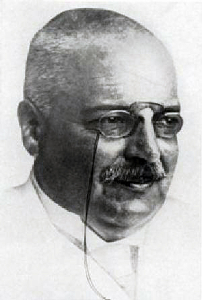October 22, 2012
Is Alzheimer’s Disease Just Another Form Of Diabetes?

By Michael D. Shaw
Since abnormal insulin metabolism has been implicated in cardiovascular disease—as well as breast, colon, skin, testicular, ovarian, and pancreatic cancers—such a notion is worthy of serious consideration. In fact, the term “Type 3 Diabetes” was first proposed in an article appearing in the December 2005 issue of the Journal of Alzheimer’s Disease.
A few months after that article appeared, lead author Suzanne de la Monte, MD, MPH, of Brown University Medical School said that “Insulin disappears early and dramatically in Alzheimer’s disease, and many of the unexplained features of Alzheimer’s, such as cell death and tangles in the brain, appear to be linked to abnormalities in insulin signaling. This demonstrates that the disease is most likely a neuroendocrine disorder, or another type of diabetes.”
Some years later, de la Monte wrote that “In many respects, Alzheimer’s is a brain form of diabetes. Even in the earliest stages of disease, the brain’s ability to metabolize sugar is reduced. Normally, insulin plays a big role in helping the brain take up sugar from the blood. But, in Alzheimer’s, insulin is not very effective in the brain. Consequently, the brain cells practically starve to death.”
For those keeping score at home…
Type 1 diabetes, also known as insulin-dependent diabetes, develops when the body is unable to produce any insulin. This form of the disease affects 5-15% of all people with diabetes.
Type 2 diabetes occurs when the body is able to produce some insulin, but not enough for it to function properly, or when the cells in the body do not react normally to insulin, a phenomenon called “insulin resistance.” This form of the disease affects 85-95% of all people with diabetes. Type 2 diabetics are often—but not always—overweight.
Type 1.5 diabetes is sometimes called “Slow Onset Type 1 diabetes” or “Latent Autoimmune Diabetes in Adults (LADA).” In this form of the disease, an antibody called GAD65 attacks the pancreatic beta cells such that insulin production is continually reduced. Since the superficial symptoms are similar to type 2, some authorities estimate that 15-20% of people diagnosed with type 2 diabetes may actually have type 1.5 diabetes.
And now, there’s type 3, which is the worst of all. Alzheimer’s is already the seventh leading cause of death in the US. Health writer Curt Werner is nothing short of eloquent in his description:
Few ailments leave as much devastation in their wake as Alzheimer’s disease. It’s a cruel, debilitating, deadly sickness with no known cure, that starts with stealing the patient’s memory as it slowly bores its way through the brains and bodies of loved ones. Then, it saps physical abilities, before robbing relatives of the person they once knew. But Alzheimer’s doesn’t stop there. It doesn’t relent until an entire family’s time, energy, and resources are virtually gone, replaced by tears, sadness, then ultimately, and unexpectedly, by relief.
More than 100 years ago, Alois Alzheimer himself noted the presence of neuritic beta amyloid plaques and neurofibrillary tangles at autopsy, in the brains of those sufferers of the disease that would bear his name. Add to the mix that Type 2 diabetics have twice the risk of developing Alzheimer’s, and those on exogenous insulin have four times the risk.
One theory is that the brain’s so-called insulin-degrading enzyme—which also doubles as a scavenger for excess amyloids—goes rogue or disappears entirely, leaving too much amyloid to gum up the works. As it happens, mice with none of the enzyme get dementia, and increased amyloid is observed in the cerebral spinal fluid of oldsters, upon insulin injection.
Finally, research published in April, 2012 from the University of Palermo, Italy suggests a relationship between metabolic syndrome (of which insulin resistance is a primary factor) and a defect in the gene INPPL1, involved in insulin signaling.
How much more will it take before our federal government and the American Diabetes Association abandon their foolhardy endorsement of the high-carb diet that by all accounts promotes diabetes in the first place?

